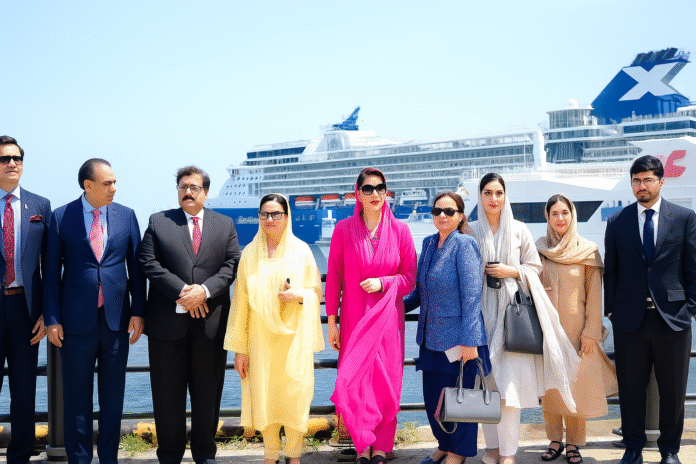Maryam Nawaz in Japan: Punjab Sets Its Eyes on a Modern Urban Future
Chief Minister Maryam Nawaz’s visit to Japan goes beyond the formality of diplomatic tours. It reflects Punjab’s readiness to evolve into a province that embraces innovation, sustainability, and international collaboration. In Tokyo, she held a series of meetings with policymakers, architects, and technology experts to understand how Japan transformed its crowded cities into global models of efficiency. Her message was clear: Punjab, too, must break free from outdated methods and move toward a future built on planning, discipline, and modernity.
Why Japan Matters for Punjab
Japan is not just admired for its skyscrapers and bullet trains — it is respected for how it rebuilt itself after war and natural disasters into one of the most advanced societies on earth. From smart public transport to eco-friendly housing and meticulous city management, Japan offers lessons that resonate deeply with Punjab’s current struggles. Maryam Nawaz noted that what makes Japan unique is not only technology but also its culture of long-term planning and citizen-centered governance. These values, she argued, can help Punjab overcome its own urban crises.
Punjab’s Reality Check
Rapid urbanization has stretched Punjab’s infrastructure to its limits. Lahore’s traffic jams, Karachi-style housing pressures creeping into Faisalabad, and solid waste piling up in Rawalpindi paint a stark picture of what unchecked growth can do. While past governments often relied on short-lived projects, Maryam Nawaz insists on a structural transformation. Her vision seeks to blend international expertise with local innovation, ensuring that Punjab’s development is not cosmetic but sustainable and future-ready.
Toward Smart, Resilient Cities
The highlight of her discussions in Japan was the “Smart City” model — a blueprint where data, technology, and design work together to make cities efficient, safe, and livable. Imagine traffic lights that reduce congestion through AI, housing blocks that save energy automatically, or emergency systems that respond in seconds — this is the vision Punjab wants to replicate. Maryam stressed that cities like Lahore, Multan, and Rawalpindi could become the testing ground for such technology-driven reforms.
Sustainability at the Core
For the Chief Minister, modernization cannot come at the cost of the environment. Inspired by Japan’s achievements in green development, she outlined plans for eco-friendly transport, renewable energy integration, and massive urban tree-planting campaigns. Projects such as “green corridors,” electric buses, and waste-to-energy plants are under serious consideration. These steps, she argued, are vital not only for cleaner air and healthier living but also for attracting foreign investors who increasingly prefer eco-conscious economies.
Empowering Human Capital
Maryam Nawaz’s approach also places strong emphasis on people, not just projects. She announced plans to send young engineers, urban planners, and architects to Japan for advanced training. Such programs will expose Punjab’s youth to international standards while encouraging them to return and apply those skills locally. According to her, the true legacy of this visit will not just be new roads or buildings, but a new generation of professionals capable of carrying Punjab into the future.
Unlocking Investment Potential
The visit also had an economic dimension. Japanese investors were briefed on Punjab’s development roadmap and invited to take part in housing, infrastructure, and technology ventures. The Chief Minister assured them of transparent governance and an investment-friendly climate. With Punjab’s growing population and expanding middle class, she presented the province as a lucrative market for Japanese firms. Such partnerships, she believes, will create jobs and drive inclusive growth.
The Road Ahead for Punjab
Maryam Nawaz concluded her trip by stating that Punjab’s transformation will not happen overnight, but the first steps have already been taken. Her government’s commitment to adopting global best practices signals a decisive break from the politics of short-term fixes. By learning from Japan’s discipline and foresight, Punjab is preparing to reimagine its cities as places where innovation, sustainability, and prosperity go hand in hand. For ordinary citizens, this promises a future of cleaner, smarter, and more dignified urban living.















































